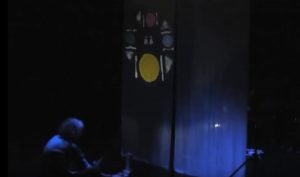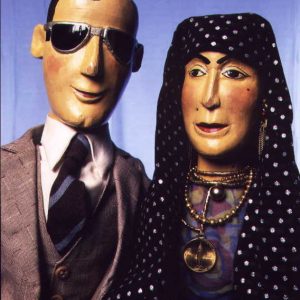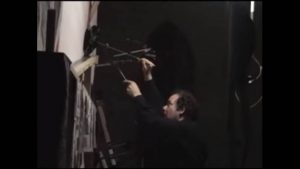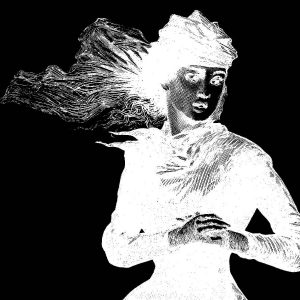One of Charles Dickens’ darkest tales, Hard Times shows a world in which supply and demand govern every human interaction. This is a society run by “facts, facts, facts”, but what the facts are, is determined by those in power. It is a world where greed, money and power rule, while the majority face poverty, drudgery, dehumanizing marginalization, and seemingly hopeless class conflict. The objectification of the lower classes is evocatively portrayed by progressively anonymizing the puppets in the work.
So much has changed since the Victorian era – or has it? This work resonates with modern political realities in ways that will prompt meaningful discussion.
Using big-head glove puppets, shadows, actors and masks, Puppetmongers tell a tale of two worlds, that looks at the uncomfortable juxtaposition of power and intimacy between generations as well as between classes. It seeks to discover and reveal what happens when you reduce people to objects and numbers and treat them as machines. Hard Times is a journey down the rabbit hole of utilitarianism.
For Audiences aged 14+
Directed by Chris Earle
Performed by Anand Rajaram, Ann Powell and David Powell
Designed and built by Ann Powell and David Powell
Light design by Kevin Hutson
Music by Rick Sacks
Stage managed by Bonnie Thomson
A co-production with Night Kitchen Theatre, with financial assistance from the Canada Council
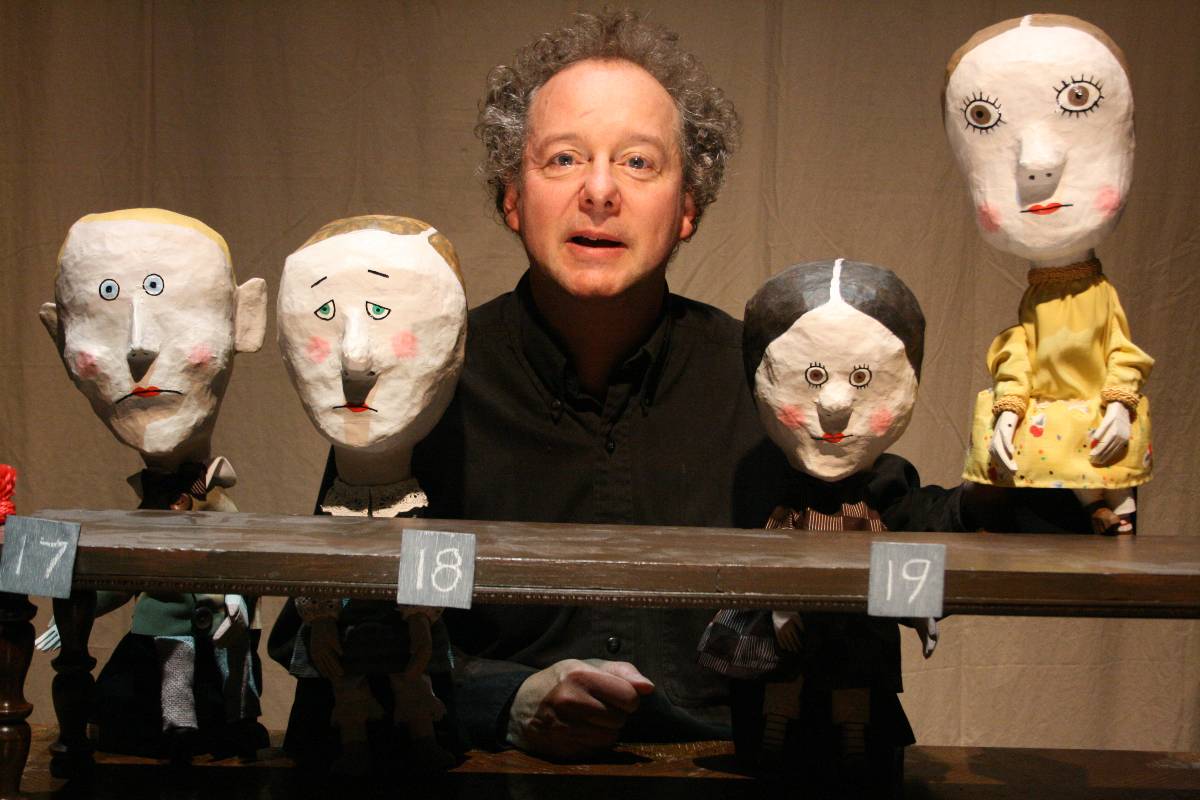
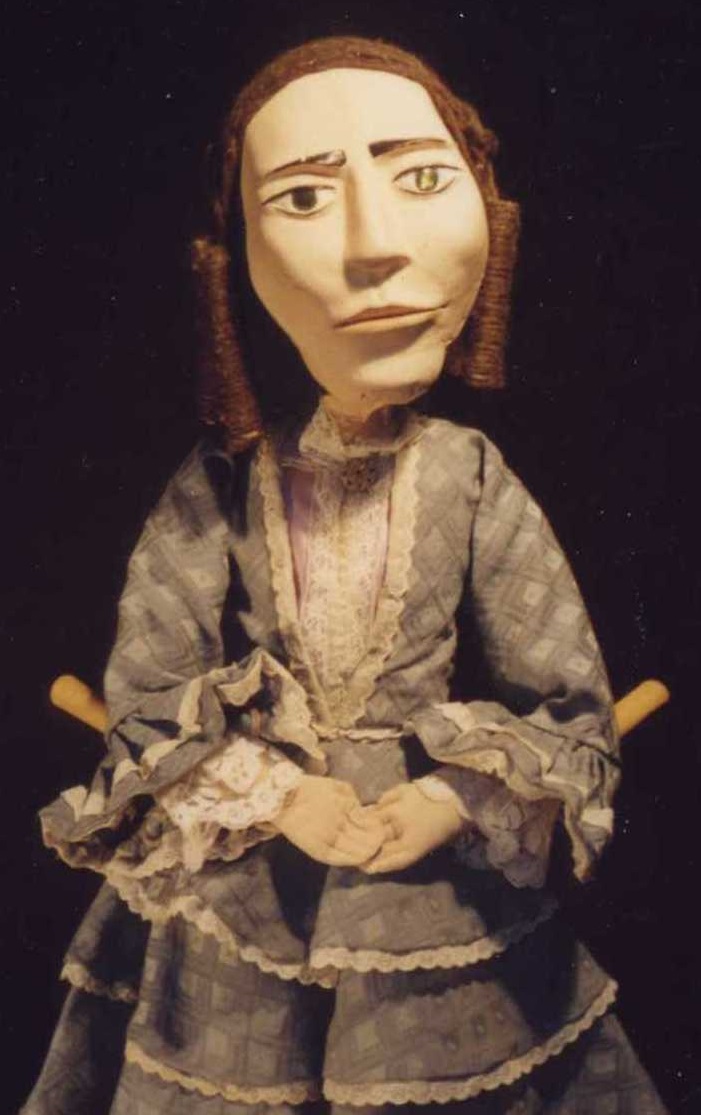
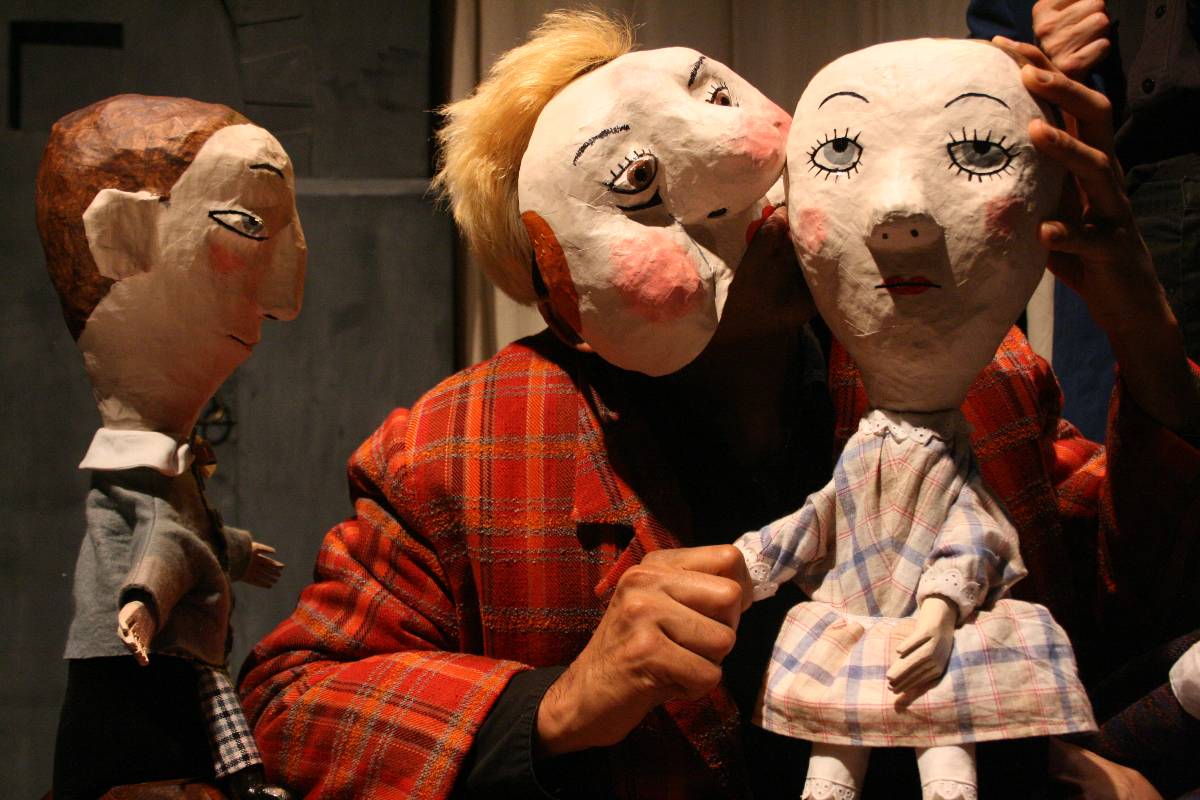
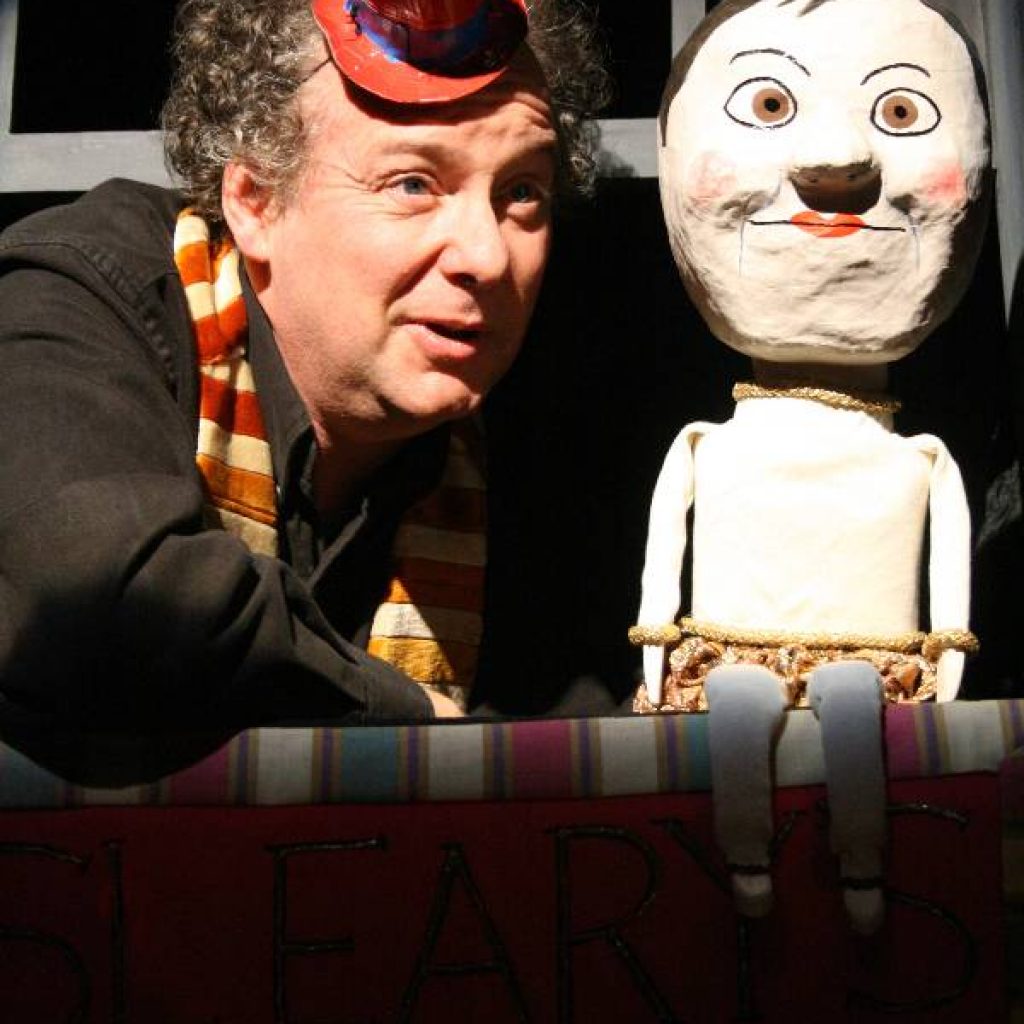
Performed in association with Theatre Passe Muraille, in the Back Space for a two week run in the fall of 2011. The production ran 90 minutes with an intermission.
AWARDS
Nominated for a Dora Mavor Moore Award, for Outstanding Light Design: Kevin Hutson.
Hard Times – Clever puppetry gives a heart to the staging of a lesser-known Dickens novel.
By Jon Kaplan. NOW Magazine, Toronto
No one’s pulling strings to make Puppetmongers’ production of Hard Times a success, but the charm of the telling and some clever dramatizing make for memorable theatre.
Adapted from the Charles Dickens novel by director Chris Earle (whose company, the night kitchen, co-presents along with Theatre Passe Muraille), the show gives the brother-and-sister team of David and Ann Powell a chance to work outside the children’s-puppetry box in which they excel.
This lesser-known Dickens book – and, in fact, it has a weaker narrative than, say, Oliver Twist or David Copperfield – is set in industrial Coketown, suggested by a frieze of tiny buildings above the stage; the smoke pouring out of chimneys dwarfs the town.
As in all Dickens novels, there’s a social message as well as a multitude of characters, among them the practical-minded schoolteacher Thomas Gradgrind, his children Louisa (ever so serious) and Tom (not so reliable), the rich, self-impressed Josiah Bounderby (who wears a plaid coat as loud as his voice), his meddling housekeeper Mrs. Sparsit, the honest but unfortunate factory worker Stephen Blackpool and the effete bounder James Harthouse.
Thematically, the tale sets the rational against the emotional, or, to use the book’s terms, facts against fancies. Over the course of the story, those who live only in their mind discover the narrowness of their existence. The original text is necessarily cut down for the two-hour show, but it ends on a note of justice paid and hope for the future.
The strength of the production lies in the cleverness of the Powells’ design, the suggestive use and interplay involving doll-like hand puppets, expressive masks and shadow play. The Powells and Anand Rajaram play all the parts, sharing the same character at different times.
The performers and director Earle invent some surprising scenes, adroit in the concise way they convey nuanced information.
In a charged encounter between Stephen, Bounderby and Mrs. Sparsit, for instance, all we see are a breakfast table and the characters’ hands; how hands move, how food is eaten and the tempo of voices combine to create vivid portraits.
The brief scene in which Louisa confronts her father about the narrow way in which he’s raised her is also powerful, not least because the use of pauses and the way that soft-spoken Louisa turns Gradgrind’s own arguments against him.
You’ll notice as much skill and inventiveness in the puppet design. The wonderfully named Mr. M’Choakumchild, an overly strict teacher, is a big head with a spindly body and long, thin legs ending in tiny shoes that tap on the floor as he walks. When the children grow up, the puppeteers pull on their legs or dresses to extend the dolls, giving the characters a new sense of height.

